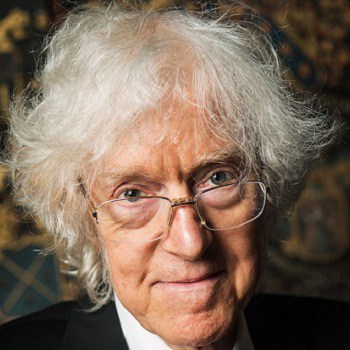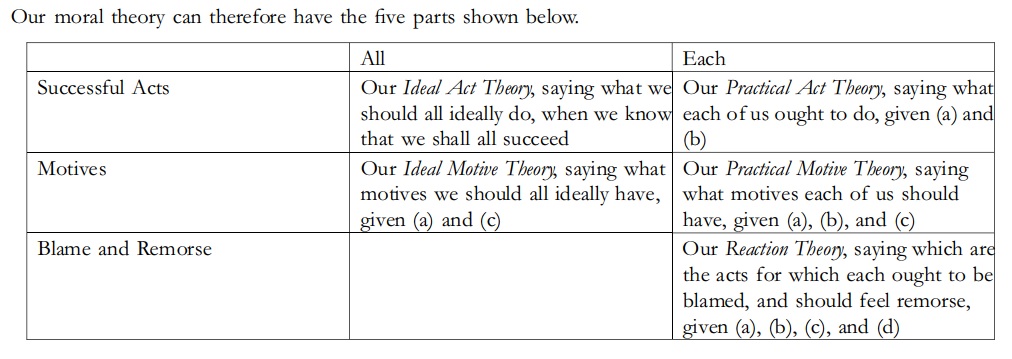from Parfit Derek’s book: “Reasons and Persons”
37. The Five Parts of a Moral Theory
What do such cases show? Most of us accept some version of the theory that I call Common-Sense Morality. According to this theory, there are certain things that each of us ought to try to achieve. These are what I call our moral aims. We successfully follow this moral theory when each does what, of the acts that are possible for him, best achieves his moral aims. In my cases it is certain that, if all rather than none successfully follow this theory, we will thereby cause the moral aims of each to be worse achieved. Our moral theory is here directly collectively self-defeating. Is this an objection?
Let us start with a smaller question. Could we revise our theory, so that it would not be self-defeating? If there is no such revision, ours may be the best possible theory. We should first identify the part of our theory which is selfdefeating.
One part of a moral theory may cover successful acts, on the assumption of full compliance. Call this part Ideal Act Theory. This says what we should all try to do, simply on the assumptions that we all try, and all succeed. Call this what we should all ideally do. ‘All’ here does not mean ‘everyone living’. It means ‘the members of some group’.
As I argued in Chapter 1, it is not enough to decide what we should all ideally do. We must take into account these four facts:
(a) We are often uncertain what the effects of our acts will be;
(b) some of us may act wrongly;
(c) our acts are not the only effects of our motives;
(d) when we feel remorse, or blame each other, this may affect what we later do, and have other effects.
When we are deciding what we believe, we should first consider our Ideal Act Theory. In asking what we should all ideally do, we are asking what our ultimate moral aims should be. These are the foundation of our moral theory. The other parts of our theory are what we need to claim, given our ultimate moral aims, when we consider the four facts stated above.
< end of Chapter 37>



Be the first to comment on "37. The Five Parts of a Moral Theory – Derek Parfit"